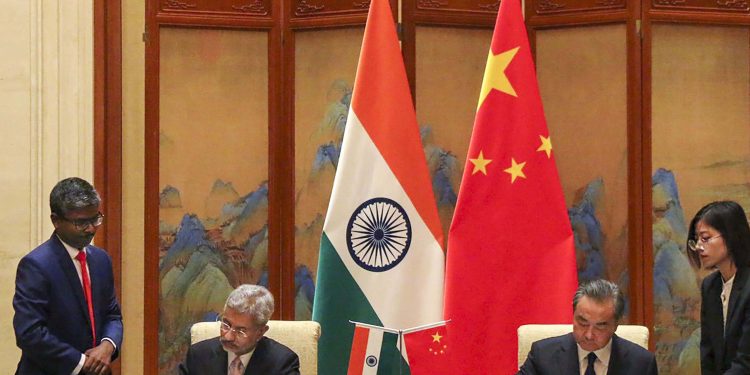Beijing: India and China agreed Monday on a host of initiatives to improve their relations, with New Delhi emphasising that the future of the ties will depend on the mutual sensitivity to each other’s ‘core concerns’ to ensure that any bilateral differences should not become disputes.
Making his first visit to China after taking over office, External Affairs Minister S Jaishankar held candid talks with top Chinese leaders. His three-day visit to China comes amid escalating tensions between India and Pakistan over the revocation of special status to Jammu and Kashmir.
Before S Jaishankar settled for a structured talk with his counterpart Wang Yi, he met the tough-talking Chinese Vice-President Wang Qishan, a close confidant of President Xi Jinping, at the picturesque residential complex Zhongnanhai, where China’s top leaders reside.
S Jaishankar held a frank discussion with Wang Qishan about the state of the bilateral ties in the context of China’s concerns over the bifurcation of Jammu and Kashmir.
After India revoked Article 370 last week, China issued two separate statements outlining its position on Ladakh and Jammu and Kashmir. In the first, China objected to the formation of Ladakh as a Union Territory by India, saying it undermined its territorial sovereignty.
It also expressed ‘serious concern’ about the current situation in the region and said ‘relevant sides need to exercise restraint and act prudently’.
After his meeting with Wang Qishan, Jaishankar held talks with Wang Yi – first at restricted delegation-level meeting followed by full-fledged delegation-level talks spanning over several hours.
At the end of the talks, both Jaishankar and Wang made candid remarks at the 4th India-China media summit where they announced a host of initiatives to boost ties ahead of Xi’s visit to India later this year.
“It is natural, both as neighbours and large developing economies, that there would be issues in our ties. Properly managing differences is therefore vital. As our leaders agreed in Astana, differences should not become disputes. That is how India-China relations can remain a factor of stability in an uncertain world,” Jaishankar said.
The positive direction of ties after the Wuhan Summit has opened up a world of new convergences, Jaishankar said, referring to the informal summit between Prime Minister Narendra Modi and President Xi Jinping last year.
“Exploiting this and taking our ties to a new level will require strong public support in both societies. The media can make a major contribution to that goal,” Jaishankar pointed out.
In his remarks, Wang Yi said ‘we are of the view that guidance provided by our leaders (Xi and Modi) is the most important guarantee for the growth of China-India relations.
“It is especially important to maintain high-level engagement, in particularly to make the preparations for the second informal summit, to ensure that China-India relations will continue to move forward along the right direction,” Wang said.
Wang also highlighted difference especially over India-Pakistan tensions and border related issues. “Well there are some differences between our two countries. We don’t shy away from these differences. We have exchanged views on these issues in a candid manner,” Wang informed.
“Regarding recent tensions between India and Pakistan, we made clear China’s concerns. On issues revolving on China’s sovereignty and vital interests, we also stated China’s principled position,” Wang told the media.
PTI







































